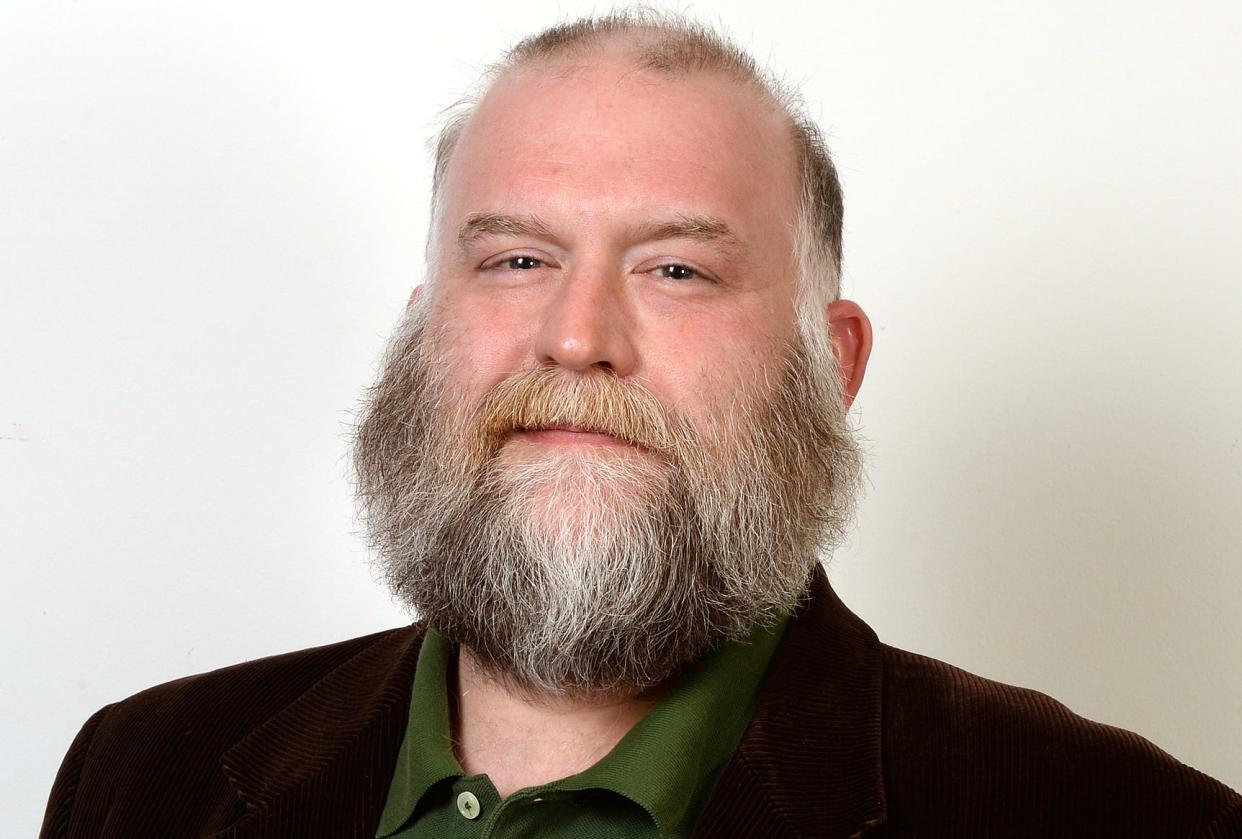David Murdock Column: Veterans' stories mix horror and hope, trial and triumph

Like most people my age, I grew up listening to stories of military service from my father and his friends. Dad served in the U.S. Air Force toward the end of the Korean War, and many of his friends had served in the military during World War II. There were even a few World War I veterans I listened to when I was a kid.
Certain themes emerged from their stories. Obviously, there were tales of the horrors of combat. Many of them, like Dad, never saw frontline service.
Dad was a flight engineer on an SA-16 Albatross rescue plane. During his service, he made two trips to Korea, both after the armistice had taken effect. That doesn’t mean that Dad and his crewmates didn’t face danger; military service is inherently dangerous, even during peacetime.
For example, Dad had two particularly harrowing tales of rescues that he and his crewmates made while stationed at Canada’s Goose Bay, Labrador, during a high point in Cold War tensions. One involved retrieving the bodies of a flight crew from a plane crash. The other ended with the man being rescued surviving.
Dad’s “Sugar Able,” as he always fondly called it, using the military phonetic alphabet of his time in service, had been sent to retrieve a sailor on a U.S. Navy destroyer in the North Atlantic. The man was suffering from acute appendicitis and needed life-saving surgery that the ship’s surgeon could not perform because of the rough seas.
The Sugar Able was an amphibious aircraft, able to land and take off from the water. The problem was how to get the sailor from the ship onto the airplane. It was too rough to ferry him over on one of the ship’s boats, so the two crews had to figure out a way to transfer this sailor, who was in great pain, from the deck of the destroyer to the hatch of the airplane.
Since the deck of the ship was much higher off the water than the hatch of the airplane, the only way to do it was to rig a bosun’s chair from the ship to the plane. This method was inherently dangerous, and the sailor ended up getting dunked in the cold water several times before arriving safely aboard the Sugar Able for a flight back to a landside hospital. He survived.
Dad had all sorts of stories like that, from daring rescues — like the time his crew’s paramedic performed a Caesarean section on a civilian woman in a remote Arctic village … with an Air Force survival knife — to the downright funny — like their various R&R flights to New York City, where Dad ate pizza for the first time.
All the veterans’ tales I heard were like that — a mixture of horror and hope, trial and triumph. The one thing that always stood out is how military service, even short hitches like Dad’s four years in the Air Force — changed these veterans for life. And it’s like that even for veterans’ tales I’ve run across in my study of literature.
Edgar Allan Poe is a good example. Although we mostly “see” Poe in the somewhat slouchy appearances he made in the few photographs we have of him — almost all made at times of great stress in his life — written descriptions of him by people who knew him don’t agree with that image. Poe served in the U.S. Army briefly, even attending West Point until he was thrown out for violating the honor code. Many people who described him in writing noted his posture. The usual term is that he had a “military carriage,” standing straight and walking precisely, as if he were on parade. That’s quite a difference from his reputation.
At some point, Dad and his fellow veteran friends always mentioned one thing about their service — sleep. In the military, it seemed to “young me,” no one ever got enough sleep. So, they learned to sleep when they could, for as long as they could. Add to that the many years that Dad spent driving an 18-wheeler on a schedule, and the sum was that Dad had a sort of superpower — napping on demand.
I don’t know how many times that Dad would announce, “I’m going to go sleep for an hour. If I don’t get up, come wake me.” But I never had to. Dad was always awake in just about an hour. He could go to sleep anywhere, instantly it seemed, and wake up just about the time he said he would. It was absolutely uncanny.
But I suppose that if he could nap when he had the chance in a loud and busy barracks, he could sleep anywhere. Dad later told me that he could fall asleep instantly and wake up alert because they had taught him how to do it in the Air Force. Simply put, sleep when you can.
We owe it to our veterans to listen to their stories — not just the tales of horror and trial, but the various ways that people under extreme pressure and stress found ways to cope. The tales of the everyday life of military men and women just might surprise us. And, more importantly, teach us.
David Murdock is an English instructor at Gadsden State Community College. He can be contacted at murdockcolumn@yahoo.com. The opinions reflected are his own.
This article originally appeared on The Gadsden Times: David Murdock recalls listening to veterans' stories

